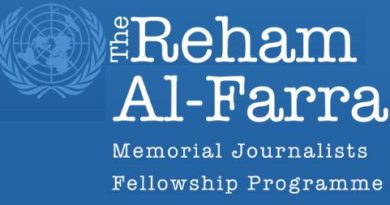How to write a successful application for a fellowship programme
In a world where competition is stiff and high, securing a position for a fellowship programme demands that you stand out. Many at times due to the long essays and details required to complete a fellowship application form many people feel it’s a lot of work hence they give up. This piece of writing aims to shed some light on how to win some fellowship programmes.
- Understand the objectives of the fellowship programme.
You need to scrutinise the call for applications, study and don’t just read the demands of the fellowship. Check key words outlined in the objectives of the fellowship. Some fellowships maybe focused on women empowerment, youth empowerment, fostering a spirit of entrepreneurship, capacity building in different areas such as championing democracy, communicating climate and environmental issues, building sustainable communities. After checking for key highlights of the fellowship programme, ask yourself is this really your area of interest? Will you benefit from the programme, does it align to your career aspirations or career / personal growth? If you tick many of the boxes and you realise that the fellowship is something that is meaningful to you, you need to sit down and draft some key ideas.
- Check the requirements of the fellowship programme.
The danger with most young people or young professionals is the idea that they qualify for every fellowship. It can be out of greediness that you find yourself applying for many or all fellowships that come your way. This is not to discourage you from applying for fellowships that you qualify for. Do due diligence check for the following:
- Is it fully funded, partial or no funding at all? Do you need to cover the costs?
- Venue location?
- Age requirements?
- Is it open to your country of nationality?
- Do you meet the language requirements? Do you need English proficiency for example?
- What is the deadline (Keep an excel sheet timeline to track and document all upcoming deadlines for fellowships or other opportunities that you want to apply for)
- Is it in person or online?
- Will your supervisor, school, university allow you to travel in case you are selected?
- What areas of interest does it cover?
Once you establish the requirements, the next thing is to find out more about the organisation offering the fellowship
- Check the objectives of the Organisation.
What will make you stand out is the ability to have an in-depth understanding of the mandate of the organisation. Specifically, how does the fellowship fulfil the mission, objectives, or vision of the organisation. Some organisations seek to promote innovative approaches to enhance entrepreneurship, some seek to build sustainable livelihoods while others are meant to facilitate the promotion of democracy and good governance. If you identify these key areas, explain in your motivation letter or essay why you will be the best candidate to be offered a fellowship position and how you contribute to fulfilling their mission. The idea is not only to benefit but contribute to the programme. Some illustrative examples are given below : What skills and knowledge do you hope to gain from the Fellowship? Suppose you are applying for Mandela Washington Fellowship under the Business and Entrepreneurship Track
A typical response will capture the following: I am convinced that l would learn the best digital marketing strategies from the facilitators as well as fellow Youth Participants, this will capacitate me to strategize in marketing my farming products. In addition, l am fully convinced that gaining business growth skills will usher in personal growth and will boost my sales by 60 % and l see myself being the biggest youth farmer in Kenya. I intend to host seminars with young people from peri-urban and transfer the digital marketing skills as well as other business growth skills set when l return home. I will develop monitoring and evaluation tools to report on baseline /existing skills among few young people before intervention of seminar training and track down 5-6 months later, when they implement the digital marketing strategies.
The above shows that the candidate is seeking audience to gain the most valuable tool in the 21st century and that he/ she sees herself developing and growing his business and he/ she intends to impart the acquired skills to other upcoming young entrepreneurs. This shows a level of growth in leadership which aligns to the mandate of the fellowship and YALI ,that is, to grow and nature the next generation of leaders.
- Avoid long winding sentences.
Fellowship essays and motivational letters are about quality not quantity. Adopt sentences that are specific, that highlight figures/ numbers / results impact measurable perhaps in percentage or actual numbers. You can highlight the following: I have been conducting behaviour change workshops for young girls in more than 12 schools and have reached out to 600 girls informing them about dangers of drug abuse, how to avoid teenage pregnancies and effective goal setting at school. I have sourced for funding from philanthropy organisations for 20 primary less privileged students. An opportunity to attend this fellowship will give me the requisite skills on raising more funding. These sentences are straight to the point and demonstrate what you have done in the past and how the fellowship can bail you out!
- Proofread your work!
There is nothing boring that reading essays and motivational letters that are full of spelling or punctual errors. Remember you are competing with top notch candidates and simple mistakes will weigh you down in the competition. Give someone to study your essays before submission. Prepare your application materials ahead of deadlines. This will give you ample time to revise and put together your ideas and make you win in the competition
- Check Alumni of the Fellowship Programme
You need to check with Alumni of the programme. Check on LinkedIn , draft a polite message seeking assistance with reviewing your application documents. Find out what will make one stand out in applying for the fellowship programme. What could be the best areas of interest in the programme!
Conclusion
Finally, preparation is the best way to secure any opportunity. Do enough research even seek clarity from the fellowship organisers if they have given that platform to assist with clarifying any grey issues.



